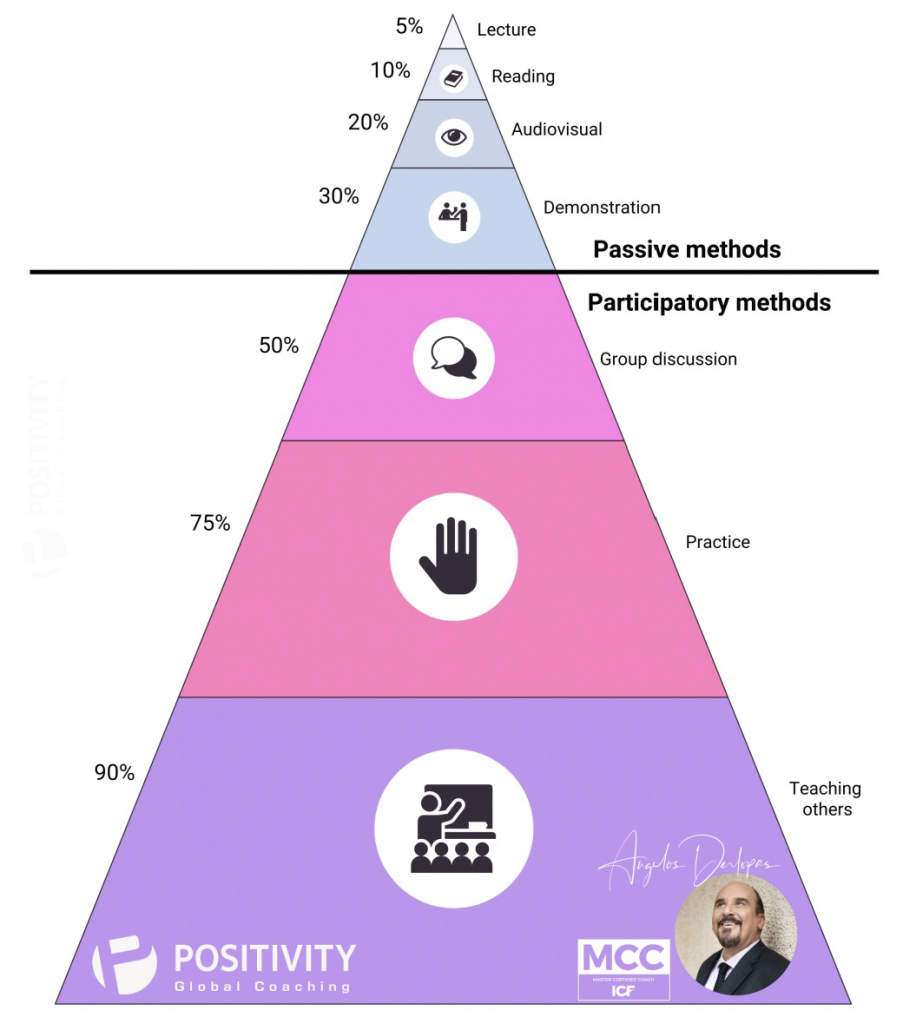Sample Exam Questions
A coach is meeting with a prospective client who is growing a new business. The coach and potential client quickly establish an easy connection. The coach is excited about the opportunity to work with the client. As the coach and client are ending their conversation, the prospective client briefly mentions the name of their new business. The coach recognizes the business, as the coach is an investor in a more established competitor business in the same community. What should the coach do?
What is the BEST action?
- Not say anything. Try to keep their role as an investor in a competing business separate from their role as a coach.
- Share that the business name sounds familiar and make a mental note to determine whether it is a competitor business later that evening.
- Share their role as investor in the competitor business only if the potential client follows up to pursue coaching with the coach.
- Share their role as an investor in a competing business and acknowledge the possibility of a conflict of interest with the client.
What is the WORST action?
- Not say anything. Try to keep their role as an investor in a competing business separate from their role as a coach.
- Share that the business name sounds familiar and make a mental note to determine whether it is a competitor business later that evening.
- Share their role as investor in the competitor business only if the potential client follows up to pursue coaching with the coach.
- Share their role as an investor in a competing business and acknowledge the possibility of a conflict of interest with the client.
A coach is working with a client who is an experienced marathon runner writing a book on training for endurance races. This is a long-held dream for the client. The coach notices that the client often uses running metaphors when talking about their challenges and progress in their writing. The client is typically upbeat and energetic, but they arrive at today’s session appearing tired and discouraged. They share with the coach that they have recently “hit a wall” in writing, with three chapters remaining. When they sit down to write, the client says they can barely come up with anything, and nothing that is worth publishing. The client says they are afraid they won’t be able to complete the book on time and that all of their work toward this goal will be lost. What should the coach do?
What is the BEST action?
- Ask the client if they would like to explore their fear of not finishing the book.
- Remind the client that they have achieved extremely challenging goals in the past and can meet this big goal, too.
- Ask the client if there was a time when they were running a marathon and felt like they couldn’t finish. Invite the client to share how they handled that challenge in the race.
- Support the client in identifying strategies to help them move forward in writing the remaining chapters of the book.
What is the WORST action?
- Ask the client if they would like to explore their fear of not finishing the book.
- Remind the client that they have achieved extremely challenging goals in the past and can meet this big goal, too.
- Ask the client if there was a time when they were running a marathon and felt like they couldn’t finish. Invite the client to share how they handled that challenge in the race.
- Support the client in identifying strategies to help them move forward in writing the remaining chapters of the book.
A client struggles with delegating tasks at work to other team members. During the last session, the client shared that an important project they are leading is falling behind schedule. The coach supported the client in identifying strategies to delegate tasks to other team members. At the next session, the client reports back and shares, “In the end, I decided to complete all the tasks myself. That was the only way to get them done on time.” The coach feels disappointment that the client did not follow through on their plans to delegate. What should the coach do?
What is the BEST action?
- Immediately reflect back on their last session with the client and identify what they could have done differently to support the client in following through on their plans.
- Take a breath and acknowledge that the client is responsible for their own choice of whether to follow through with their stated plans or not.
- Set aside their disappointment for now and focus on the current session with the client. Decide to reflect on this situation during an upcoming session with their mentor coach.
- Praise the client for meeting the project deadlines, but ask why the client failed to support their team members’ development.
What is the WORST action?
- Immediately reflect back on their last session with the client and identify what they could have done differently to support the client in following through on their plans.
- Take a breath and acknowledge that the client is responsible for their own choice of whether to follow through with their stated plans or not.
- Set aside their disappointment for now and focus on the current session with the client. Decide to reflect on this situation during an upcoming session with their mentor coach.
- Praise the client for meeting the project deadlines, but ask why the client failed to support their team members’ development.
A coach has worked for one year with a client. The client has been identified by their supervisor as a potential leader in the organization based on their high-quality work, good relations with peers, and innovative ideas for future projects. However, the client rarely speaks up in meetings with senior leaders and when they do, they often downplay or diminish their ideas. The client’s supervisor recommended coaching to improve the client’s executive presence, with the ultimate goal of developing as a leader in the organization. At the start of coaching, the client was often self-critical. However, the client has made tremendous progress in recent months. During their closing session, the coach notices that the client has a confident, easy smile. When the coach shares their observation with the client, the client responds by saying, “I feel different, empowered, ready to take on new challenges.” The client adds, “And I was just nominated by the CEO to be part of a leadership development program for emerging leaders in our company!” What should the coach do?
What is the BEST action?
- Acknowledge the client’s growth in confidence over the past year, and invite the client to share how they plan to celebrate their selection for the leadership development program.
- Invite the client to identify challenges they would like to take on next.
- Ask the client what they may need to maintain their new confidence.
- Suggest to the client that they extend their coaching engagement to work toward a new goal of being promoted to a leadership role.
What is the WORST action?
- Acknowledge the client’s growth in confidence over the past year, and invite the client to share how they plan to celebrate their selection for the leadership development program.
- Invite the client to identify challenges they would like to take on next.
- Ask the client what they may need to maintain their new confidence.
- Suggest to the client that they extend their coaching engagement to work toward a new goal of being promoted to a leadership role.
A client comes to a session appearing very stressed. When the coach asks what the client wants to talk about, the client frantically lists a major event they are planning at work, a large family gathering they are organizing, and caring for their aging parents. The client seems overwhelmed, and the coach notices tears in the client’s eyes. What should the coach do?
What is the BEST action?
- Ask the client if they need to take a moment before starting the coaching sessions, since they seem upset.
- Ask the client to share more about their aging parents.
- Acknowledge that the client has shared three significant challenges that they are facing, and ask the client which one they would like to explore first.
- Ask the client to begin with the major event they are planning at work, since they mentioned it first.
What is the WORST action?
- Ask the client if they need to take a moment before starting the coaching sessions, since they seem upset.
- Ask the client to share more about their aging parents.
- Acknowledge that the client has shared three significant challenges that they are facing, and ask the client which one they would like to explore first.
- Ask the client to begin with the major event they are planning at work, since they mentioned it first.
A university biomedical researcher is working with a coach to improve their interactions with colleagues. The client is a very analytical thinker and can easily explain detailed data points and complex graphs, but seems reluctant share anything personal with the coach. In previous sessions, the coach encouraged the client to describe how they felt at social events, but the client seems highly uncomfortable, answering only with short, one-word responses. When the client arrives to their session today, the client silently hands the coach a journal. The client has written several, detailed entries over the last week about their experience attending a university luncheon, a faculty party, and a staff development workshop since their last session. While the client says little to the coach in the moment, their entries show deep reflections about the anxiety the client experienced at these events and their desire to overcome social anxiety. What should the coach do?
What is the BEST action?
- Acknowledge the reflection work the client has done, and ask the client if they feel comfortable exploring some of the emotions they described in their journal.
- Ask the client if they would summarize the entries they detailed in their journal for the coach.
- Ask the client to identify some steps they can take to overcome the anxieties they wrote about.
- Ask the client what new awareness they developed about themself through the journaling process.
What is the WORST action?
- Acknowledge the reflection work the client has done, and ask the client if they feel comfortable exploring some of the emotions they described in their journal.
- Ask the client if they would summarize the entries they detailed in their journal for the coach.
- Ask the client to identify some steps they can take to overcome the anxieties they wrote about.
- Ask the client what new awareness they developed about themself through the journaling process.
A coach recently began working with a client to help them plan for retirement. The client is a well-respected teacher who has taught for 30 years at a local elementary school. The client consistently arrives highly prepared and organized for coaching sessions, routinely reporting progress between sessions and identifying specific topics to focus on during coaching conversations. The client shares they are looking forward to retirement, but they discuss their retirement plans in a very matter-of-fact way. During the current session, the client shares that they have two weeks left before their retirement begins. They would like to focus on a few remaining plans they need to make. Suddenly, the client begins to cry and says, “I’ve spent half my life at this school! I adore my students and my colleagues are my best friends. I can’t imagine what my life is going to be like when I no longer walk through the front doors of the school each morning!” What should the coach do?
What is the BEST action?
- Pause for a moment, then ask the client to identify the remaining plans they would like to focus on today.
- Ask the client if they are sure they want to retire.
- Acknowledge that retirement is a significant life transition and that emotional responses are normal.
- Pause, then acknowledge the emotional impacts the transition seems to be having on the client, and ask if they would like to spend some time with those feelings.
What is the WORST action?
- Pause for a moment, then ask the client to identify the remaining plans they would like to focus on today.
- Ask the client if they are sure they want to retire.
- Acknowledge that retirement is a significant life transition and that emotional responses are normal.
- Pause, then acknowledge the emotional impacts the transition seems to be having on the client, and ask if they would like to spend some time with those feelings.
A client is working with a coach to support them during an important career transition. The client currently holds a demanding role as Chief Operating Officer of a company, while also raising two young children and serving as primary caretaker for their aging parents, who live with the client. The client recently received job offers from three different companies, each requiring the client and their family to relocate. The client comes to the session excited about the new job opportunities and hopes to gain clarity through the session on which offer to choose. The client starts by discussing the things they are looking for in a new job, energetically listing opportunities for growth, challenging responsibilities, a talented team to lead, and the potential for travel. When the coach asks what the client’s children and aging parents may need in a new community, the client’s excited smile disappears and they are suddenly quiet. What should the coach do?
What is the BEST action?
- Repeat the question to the client to give them another opportunity to respond to the coach’s inquiry.
- Ask the client if they are okay to proceed with the session, or if they need a break.
- Pause for a moment, then share with the client that they noticed a change in the client’s energy. Ask if the client would like to explore what they are feeling in this moment.
- Support the client in weighing the offers they have received by inviting the client to explore each of the characteristics they listed for a new job.
What is the WORST action?
- Repeat the question to the client to give them another opportunity to respond to the coach’s inquiry.
- Ask the client if they are okay to proceed with the session, or if they need a break.
- Pause for a moment, then share with the client that they noticed a change in the client’s energy. Ask if the client would like to explore what they are feeling in this moment.
- Support the client in weighing the offers they have received by inviting the client to explore each of the characteristics they listed for a new job.
Above information is based on ICF announcements.
If you want more information about the exam please read here.




Do you want to receive your PCC credential without submitting your coaching sessions to ICF?
If you are an ACC coach, or have a 60-hour ACSTH training certificate, we’ll accept it towards your LEVEL 2 certificate in our “Advanced Diploma in Professional Coaching Mastery”.
Send us an email at ask@positivityglobal.org
Learning Methods
There are many methods with which trainees become engaged.
All of these allow them to receive knowledge but with different retention rates.
In Positivity Coaching we use all the different learning methods and we emphasise in the participatory ones.
After all, what’s better than teaching coaching with the coaching way?
Once enrolled into the programme you will get access to:
- Digital platform
- On demand Video lectures
- Online Training manual
- Coaching Models on demand video demos
- Classroom Q&A
- Group Mentor Coaching
- Privé Mentor Coaching
- Group Supervision
- Group Tutoring
- Credentialed XP; receive coaching by ICF credentialed coaches.








